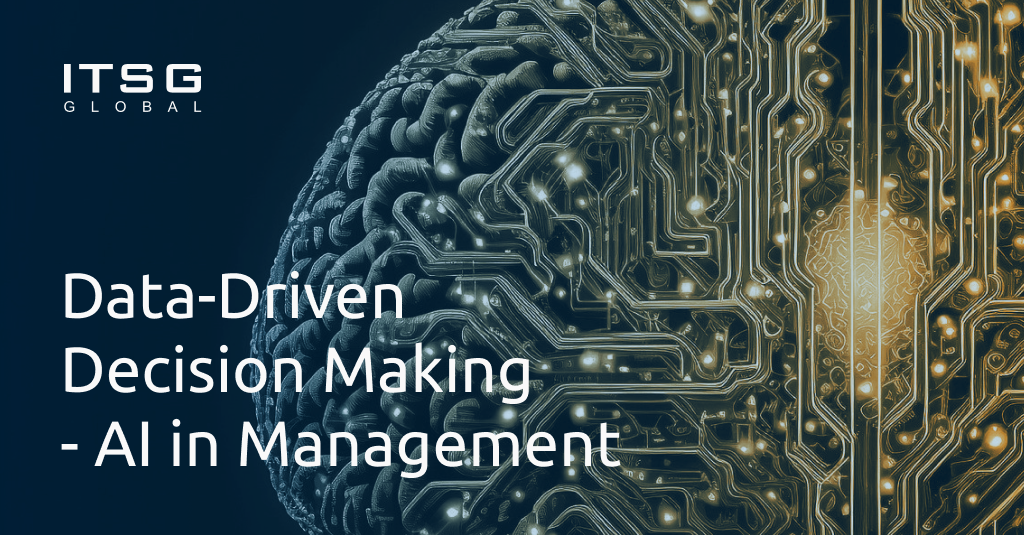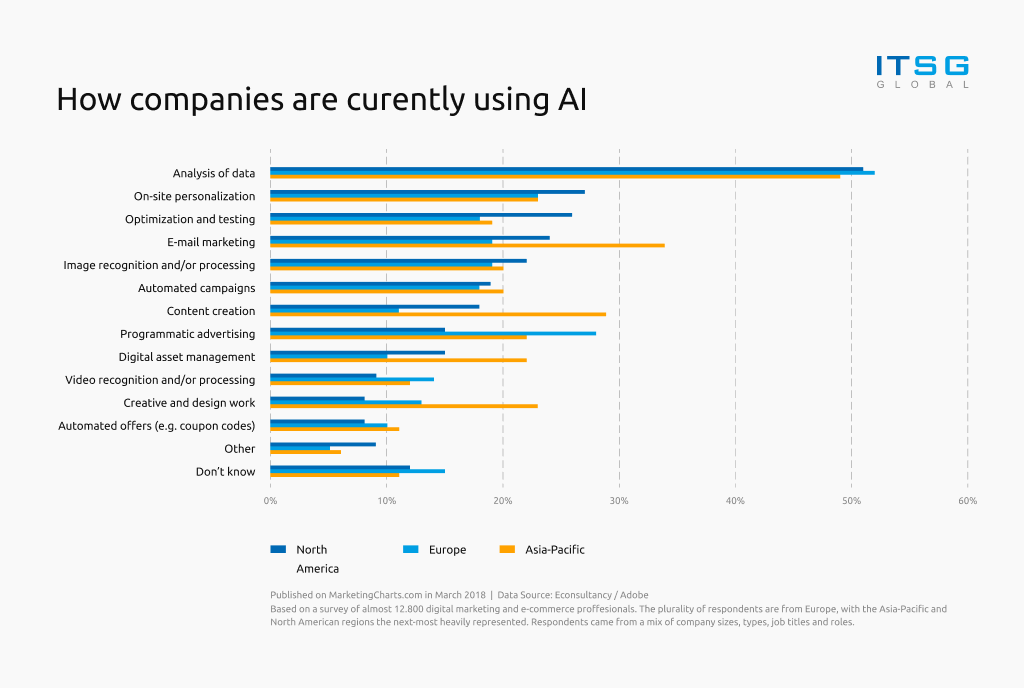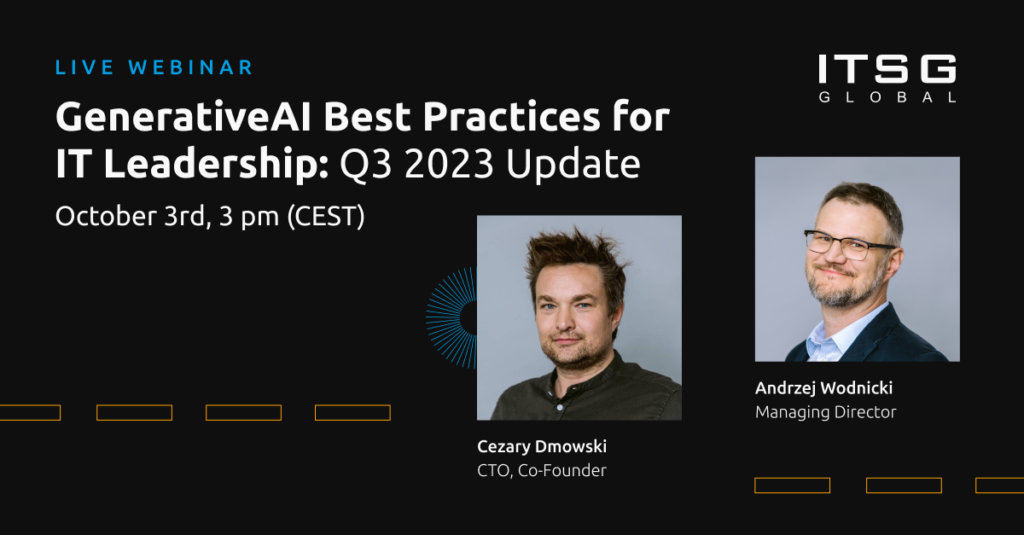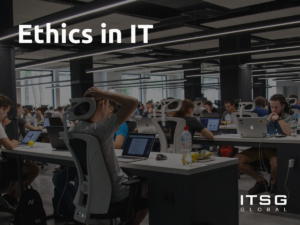19 September 2023

Understanding it’s more than just a minor trend, we have dived into AI in 2021. We have established a sizable team of experienced artificial intelligence specialists, dedicated to data management and analytics. That led us to obtain the capability to transform complex and challenging business ideas into efficient solutions. Generative AI has inspired us to work on even more unique business AI-based products that will be used commercially in the next couple of months.
GenerativeAI has been discussed for a while and depending on one’s profession they might have considered using it for their business. The point is, that a lot of available articles about GenerativeAI were written from the perspective of a passionate – someone who has the time and resources to experiment with different products and understands more or less what GenerativeAI can do. That means – a lot of reading, a lot of research, and a lot of time that has to be invested before anything is implemented. That’s why we have run our own research and presented the data in the form of a report.
In order to understand what GenerativeAI is, it’s important to understand LLMs (large language models). LLMs are models trained usually by feeding them data without any labels in the first stage of the process and later introducing self-supervised learning procedures. LLMs guess but they become better at guessing over time. The more people experiment with ideas and rate the outcome, the better the result the LLM will provide over time.
What’s particularly relevant, generative artificial intelligence can produce original content. GenerativeAI goes beyond copy-paste – and while its capabilities are limited, it still possesses a high level of originality that can be used for various purposes.
As a manager, you don’t have to be a specialist in LLMs, but there’s a bottom line that has to be understood – one LLM cannot do all. One has to figure out what processes could be improved and based on that choose a GenerativeAI product – the report covers some of the questions that might be valuable in the decision-making stage.
AI is currently being used (and that means – tested) in different areas of expertise and it already looks more promising in some of them.

Funding for Generative AI reached $12 billion from January to May of 2023. Venture capital and other private external investments in generative. Moreover, investment in AI tools increased by 74 percent annually from 2017 to 2022.
The return of investment looks promising even when looking specifically at last 12 months only:
- ChatGPT release took place in November 2022
- OpenAI released a new large language model, or LLM, called GPT-4 with markedly improved capabilities only four months later
- by May 2023, Anthropic’s generative AI, Claude, was able to process 100,000
- tokens of text, equal to about 75,000 words in a minute, when just two months before it was only 9,000 tokens
- in May 2023, Google announced several new features powered by generative AI, including Search Generative Experience and a new LLM called PaLM
It also seems like North America will dominate the AI landscape, since US-based companies invested approx. $8 billion between the years 2020 and 2022 in AI, which also makes 75% of all investments done in that period.
Which operations are commonly “given” to AI? The biggest impact (in $ billions) was noted in:
- Sales
- Marketing
- Software engineering (in corporate IT)
- Software engineering (for product development)
- Customer operations
- Product and R&D
Those trends are easily explained by the nature of Generative AI use cases – that is, for those areas the ability to use natural language is crucial. Optimization of numbers could be easily done by previous forms of AI.
Because of the wide scope of how it can be used, economically wise, generative AI’s impact on productivity could add trillions of dollars in value. It’s estimated that generative AI could add the equivalent of $2.6 trillion to $4.4 trillion annually, which is going to increase the impact of all artificial intelligence by 15 to 40 percent. This estimate can be doubled if the impact of embedding generative AI into software currently used for tasks beyond those use cases is included.
Around 75 percent of those numbers go into customer operations, marketing and sales, software engineering, and R&D. In some of those cases human factor is still necessary to give prompts or rate the outcome.
We’ve determined what it means to be AI literate. The term means:
- Capability of understanding the fundamental concepts of how different models work and how to choose a model based on expected results. That means, that the employee should differentiate available solutions and make recommendations accordingly
- Ability to evaluate if the chosen AI system is working as it should. That also means maximizing the effectiveness and experimenting with new approaches to see how they influence the model
- Having actual experience with AI tools. That one is tricky if the manager cannot assess those practical skills
- Theoretical knowledge and awareness of what is possible to do and which tools are worth experimenting with
- Understanding of ethical issues and potential biases in AI usage
- General data literacy and understanding of how data are processed
In our research, we’ve asked IT professionals how the existence of GenerativeAI will impact the business landscape. Only 17% of people asked about the new shape of the job market said that the influence is going to be minor. 11% said it’s not going to significantly affect the company’s needs, 51% claim it’s going to change some of the skillsets needed, but 21% are certain that it’s going to revolutionize the job market. 34% of surveyed people said that they will certainly use AI to augment human capabilities in future projects and 38% are considering it in specific areas. Only 14% are unsure about the trend and another 14% are skeptical and do not plan to implement it.
Some aspects are still left for further discussion. Those are ethics in AI, data privacy, monopolization, and potential negative impact on people and they will be discussed many times in the future which is not going to slow down AI expansion.
That being said, at ITSG Global our R&D team together with our key experts are working hard to prove different use cases that our Customers can profit a lot and improve the way they do business.
Author: Cezary Dmowski, CTO, Co-owner at ITSG Global

To learn more join us on Tuesday, October 3rd 2023 at 3 pm (CEST) for a brand new webinar: GenerativeAI Best Practices for IT Leadership: Q3 2023 Update. Register here:






